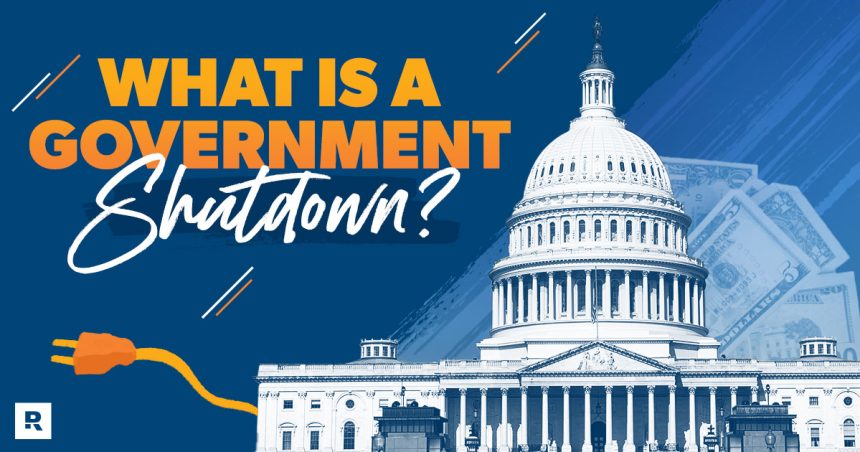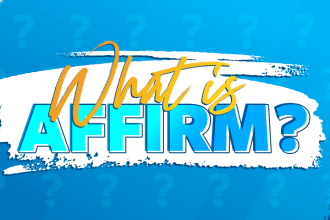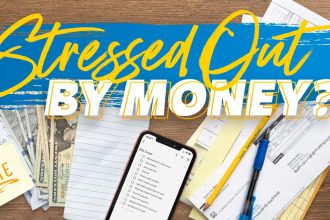The term government shutdown sounds freaking scary. We don’t know about you, but putting those two words together makes us think that all laws just get thrown out the window (cue the chaos breaking out in the streets!). Of course, that’s not what happens. In fact, if you’re reading this, you’ve already lived through a few government shutdowns, and you may not have even noticed they were happening.
Like most things that have to do with politics, there’s a lot more talk about a government shutdown happening than it actually happening. There have been about 10 close calls since 1980, but only four true shutdowns that lasted longer than one business day.1 Now, when the government does shut down for a longer period of time, you might feel an impact. But unless you rely on a federal paycheck, it’s probably going to be more of a minor inconvenience than a life-altering event.
Here’s what you need to know about a government shutdown and how it might affect your wallet:
What Is a Government Shutdown?
Basically, a government shutdown happens when Congress doesn’t approve a spending bill by the end of their fiscal year (September 30).2
You can’t keep a business up and running without money coming in (obviously). Government businesses are no different. So, when lawmakers don’t approve the bills that fund those government businesses, they’re forced to close up shop. And if lawmakers approve only part of the spending bill, there’s a partial government shutdown—closing some, but not all, government offices.
It’s important to note: All essential government businesses stay open even if the government shuts down (think: air traffic controllers, TSA and postal workers). The problem is, even though these workers are expected to keep working, they’re probably not going to get a paycheck until after the shutdown ends.
Meanwhile, government businesses considered nonessential—like the Department of Agriculture and National Park Service—close their doors during a government shutdown. And that means hundreds of thousands of federal workers are furloughed.3
How a Government Shutdown May Affect You
If you’re a federal employee:
A government shutdown is likely going to have the biggest impact on federal workers—if that’s you, you might need to prepare to be furloughed or have delayed paychecks.
When the government shut down in 2013 and early 2018, about 850,000 federal employees were furloughed.4 Those employees weren’t allowed to work and didn’t get their regular paychecks. And during the longest-lasting partial shutdown (35 days) in 2018–2019, about 380,000 employees were furloughed, while 420,000 continued to work without pay.5 Think about it . . . that’s a whole month without a paycheck. Yikes! But thanks to a bill passed in 2019, furloughed employees are now guaranteed back pay after shutdowns end.6
While government shutdowns may not happen often, it’s still something you’ll want to prepare for if you rely on a federally funded income (more on that later).
If you’re a farmer or buying produce:
Even though they’re not federal employees, many American farmers could lose out on income during a government shutdown because the U.S. Department of Agriculture falls in the unessential category. That means the offices and services that help American farmers get payments and funding close their doors.7
For those of us who don’t work in the farming industry, we’d feel the hit at the grocery store with fewer supplies and skyrocketing prices for fruits and veggies.
If you’re trying to get a federal mortgage loan:
Shutting the government down also means closing government offices that are in charge of verifying incomes and Social Security numbers. So if you’re trying to get approval for a Federal Housing Administration (FHA) loan or a Department of Veterans Affairs (VA) loan, you’ll probably have to wait a lot longer.
Taxes don’t have to overwhelm you. See what’s best for your situation—and services you can trust.
But on that note: We don’t recommend FHA or VA loans, because they’re some of the more expensive types of mortgages. You’re better off leaving the government out of your home-buying process and sticking with a 15-year fixed-rate conventional mortgage.
If you qualify for Social Security or Medicare:
The money for Social Security and Medicare is usually approved under mandatory spending bills—separate from the annual spending bill that’s due at the end of the fiscal year. That means if you’re currently enrolled in Social Security or Medicare, those benefits will be there for you even if the government does shut down.8
However, you probably won’t be able to enroll in Social Security or Medicare during a government shutdown, because the workers who handle enrollment would likely be furloughed.9 During the 1995–1996 government shutdown, more than 10,000 Medicare applicants were temporarily turned away every day of the 26-day shutdown.10
If you qualify for SNAP benefits:
The Supplemental Nutrition Assistance Program (SNAP) is also funded by a mandatory funding bill, but a government shutdown could mess with the program’s ability to send out food stamps.11 It might also get in the way of stores renewing their Electronic Benefit Transfer (EBT) card licenses, which could hurt families that rely on that service.12
If you qualify for health grants:
The National Institutes of Health (NIH) can’t admit new patients or process any grant applications in a government shutdown.13 During the 2013 shutdown, states were forced to make payments up front for certain welfare programs like Temporary Assistance for Needy Families.14
If you have travel plans:
Okay, this may not be the most important issue, but a government shutdown can cause major travel pains.
During the 2018–2019 shutdown, air traffic controllers and TSA agents were expected to keep working without pay—but lots of them didn’t. That caused long lines at security checkpoints, canceled flights and crazy delays at many U.S. airports.15
A government shutdown also means that national parks, museums and monuments are either closed to the public or running without staff. The National Park Service says it lost out on more than $500 million in visitor revenue when all parks closed during the 2013 government shutdown.16 And while many parks stayed open during the 2018–2019 shutdown, people complained about property damage and trash buildup because park staff wasn’t working.17
How to Prepare for a Government Shutdown
We’ve said it time and time again: You can’t control what’s going on in the White House, but you can take control of what’s going on in your house. Here are a few things you can do to keep a government shutdown from sending you into panic mode:
Have a Fully Funded Emergency Fund
Historically speaking, a government shutdown likely won’t last longer than a month.18 So if a shutdown causes you or your spouse lose a paycheck or two, a fully funded emergency fund is a nice cushion to fall on until your back pay rolls in.
If you have consumer debt, you should have a starter emergency fund of $1,000. Then, once you’re out of debt, bump it up to a fully funded emergency fund of three to six months of expenses. That way, if the government shuts down—affecting your income, your benefits or even your travel plans—it’s not going to break you.
But what if you don’t have a fully funded emergency fund (because you’re focusing on paying off debt) and you find yourself missing a paycheck? First, take a deep breath and remember that the shutdown won’t last forever. Then, press pause on debt payments and focus on taking care of your Four Walls—food, shelter, utilities and transportation.
Find Ways to Save
If a government shutdown affects your income or the prices of your favorite foods, it’s time to find easy ways to save! That might mean getting extra savvy at the grocery store or cutting ties with Hulu. Check out these simple money-saving tips for more ideas.
Budget
The best way to stay in control of your money is to budget. It gets a bad rap, but a budget just allows you to spend money on the things you actually care about (without going overboard).
You should budget every month so you know exactly how much is coming in and going out. And if your income is going to be different because of a government shutdown, you’ll need to budget for an irregular income.
Whether there’s a government shutdown or not, it’s always a good idea to have your finances in order. Building a budget can seem overwhelming at first, but it’s really simple once you get the hang of it. And when you budget with the EveryDollar app, it’s even easier.
The best way to stay on top of your budget is with the premium version of EveryDollar. You’ll get cool features—like budget reports and bank tracking—as well as tons of video courses that cover everything from investing to insurance.
Read the full article here














